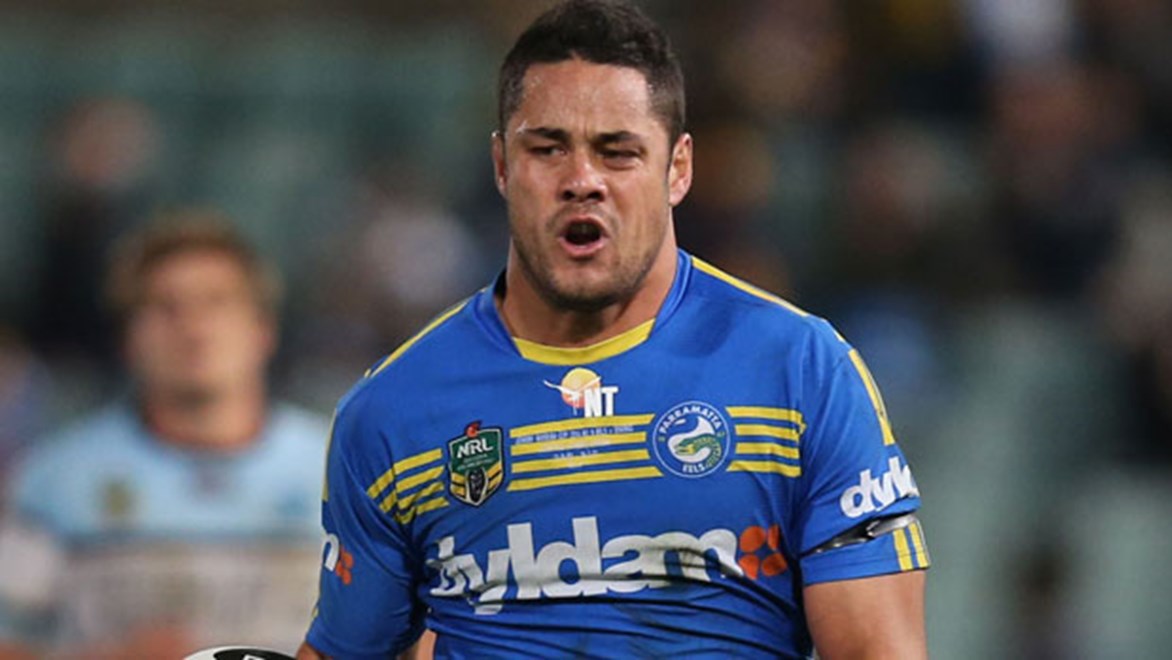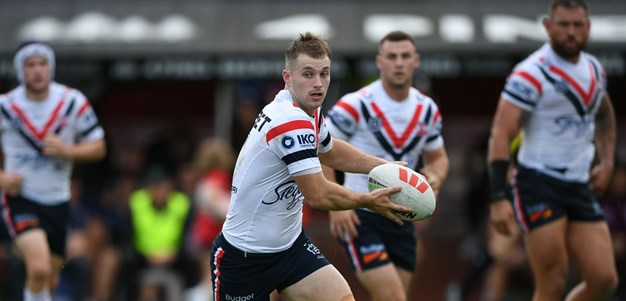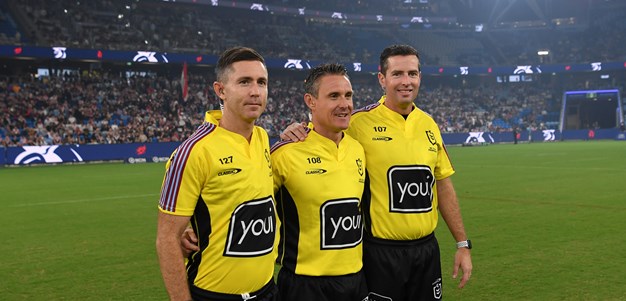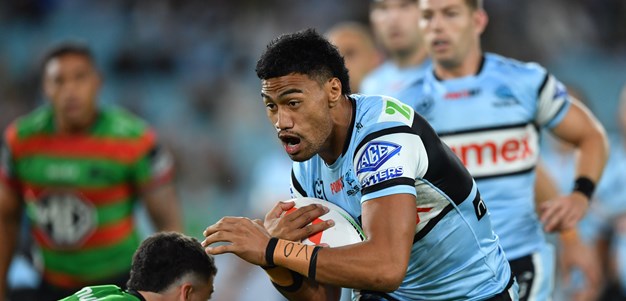

A few weeks prior to the 2008 World Cup Jarryd Hayne could march down a street in Suva and the locals couldn't have cared for all the Fiji Bitter in the islands.
On his return four weeks later, it was Bati-mania.
"We came back from the World Cup we couldn't walk down the street," recalls Hayne.
"We had to get a taxi one time to about 200 metres down the road because we were getting stopped and pulled."
The Pacific Islands are literally, the sleeping giants of rugby league. Ask any winger that's been bulldozed by Semi Radradra this year, or burnt on the outside by Marika Koroibete.
With the launch of the NRL's Pacific Strategy, rugby league is taking another step toward waking a region limitless in potential. The next moves the game makes need to match that potential in size.
Already about 37 per cent of NRL players share a link to places like Fiji, Tonga, Samoa and Papua New Guinea. That's not including the hundreds and thousands that turn out in competitions below the elite level.
Hayne, the hottest player in the game at the moment, was joined by its most marketable, Sonny Bill Williams, on Thursday to kickoff the initiative alongside CEO David Smith.
Williams jets out, along with Smith and Kangaroos coach Tim Sheens, for his native Samoa on Sunday, while Hayne will head to Fiji later in the year along with other NRL stars.
As the NRL goes about establishing a similar program to the League for Life one currently set up in PNG, it hopes to engage up to 10,000 students throughout Fiji and Samoa through literacy and anti-bullying programs.
It was Williams who summed up the relationship between the game and the developing region best, and just how much current players have to gain from giving something back.
"It's a two-way street," he said.
"The islands are important to the game and the game's important to the islands.
"I think going back there is one bit of advice I would give to any footy player of island descent who's made a name of themselves. Go back and see just how simple they live over there.
"It's easy for footy players, especially of island descent to come to New Zealand and come to Australia, make it big and forget how humble they are and how happy they are. It's a great leveller."
"The work ethic over there is crazy. Just how hard they work for how little they have. It gives you a good touch on what it is to be happy with what you have."
Smith is also aware of how important the Pacific is, but is realistic about how rugby league can go about capitalising on the foothold the game has ground out against traditional powerhouse rugby union.
An NRL game being taken to PNG or Fiji for example is still a few years off yet. Perhaps taking a trial match to Suva or Port Moresby, as is the case with country regions in NSW and Queensland each year, is the next leap.
"Taking an NRL game away is something you’d consider but it's complex," Smith said.
"The stadiums would have to be right; the schedule has to be right.
“The South Pacific Games will be in PNG next year. There is a new stadium that’s being built. Some of the facilities there are pretty good. Some of the facilities in Fiji are pretty good.
"I wouldn’t say it’s out of the question in terms of whether it’s an NRL game or one of our international games. It’s something we would consider as part of our development."
As is the stunning arrival of the PNG Hunters in the InTrust Super Cup this year, where they're currently fighting for a finals appearance in their first year.
Ditto the moves to install a Fijian side in the NSW Cup for 2016, with the team set to be based out of Suva and play their home games at ANZ Stadium.
All these things take time, effort, and of course money. A resource which Smith admits isn't coming in bucket loads at present, but could well be sooner rather than later.
"Hopefully we'll be working in tandem with respective governments and making sure that as the community benefits come through everybody plays a part," Smith said.
"It's not a significant amount of money to do what we're doing; it's a very small amount of money.
"But as the game develops working in conjunction with government and working with the local rugby league bodies I think we should be investing significantly.
"The opportunity for us as a game to make people's lives better in Samoa, Fiji, tonga and PNG is phenomenal. And to then see the rich flow of players coming through into the game is a benefit too.
"I don't think there are any boundaries."
Awesome to launch the pacific strategy with @sonnybwilliams Exciting times for the pacific nations. #Bati pic.twitter.com/S1nKn6AD1A
— jarryd hayne (@jarrydhayne_1) August 13, 2014



